Women Population Census Takers at a Glance
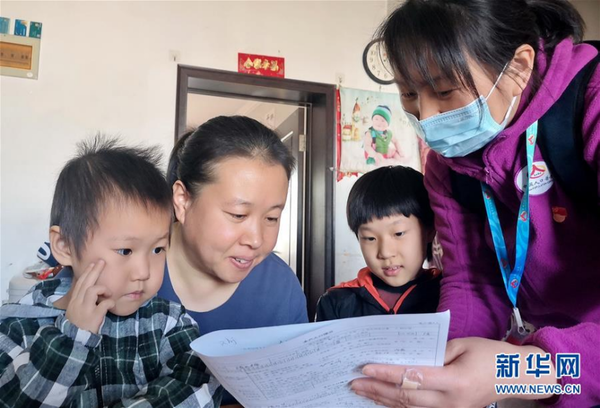 |
| A census taker (R) helps residents register information on a form at Wanyuannanli Community, Donggaodi Sub-district, Fengtai District, in Beijing, on November 10. [Xinhua/Li Xin] |
China started its seventh population census on November 1, with about seven million census takers going from door to door to document demographic changes in the world's most populous country. Among these census takers, women took on major roles, and stuck to their posts with passion, diligence and patience.
Nie Mengmei, secretary of the Party Committee of Nanchizi Community, Donghuamen Sub-district, Dongcheng District, Beijing, is a census taker in this year's population census.
She is responsible for the publicity of the census work, the information registration and reporting as well as the training of her census team workers.
Nanchizi Community is a residential area where most of the residents are native to Beijing. The elderly people account for a large proportion of the local population. Mindful of this situation, Nie and her colleagues worked out detailed methods. They are always sure to speak slowly to the elderly in case they may not hear clearly.
With the impact of the novel coronavirus (COVID-19) epidemic this year, the census taking work was complex and difficult.
"With nearly 3,000 households and a population of more than 8,000 people, we 16 census takers have a large workload," said Nie.
"Most of the members in our team are women, who need to take care of the elderly and children in their own families, and they have to work overtime every night since residents are barely at home in the daytime. But everyone remains enthusiastic about their work," Nie added.
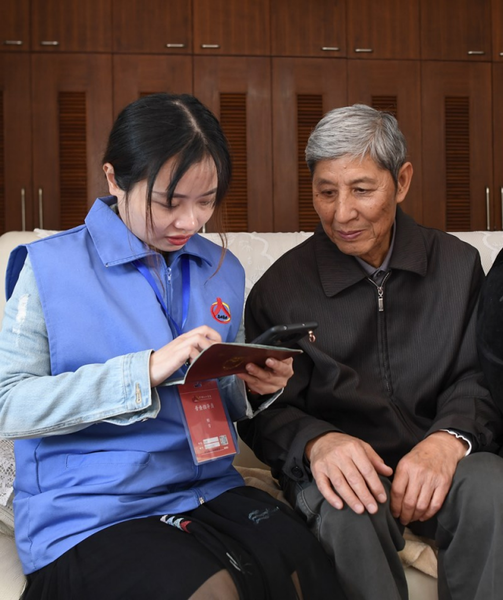 |
| A census taker (L) registers a resident's information via an electronic device at a community in Wuxing District, Huzhou City, East China's Zhejiang Province, on November 13. [Xinhua/Huang Zongzhi] |
Zhang Meng, another census taker in Nanchizi Community, is head of the community service station.
Talking about her experience of being rooted in the community for more than 10 years, Zhang said: "I don't feel that there is anything to boast about. It is a painstaking job. I have joined the census work twice, and for that I feel very lucky."
For this year's census, a new information collection method of self-reporting via mobile phone was used for the first time, which has facilitated data collection. However, there were also problems, in that some elderly people had difficulty in operating smart phones.
"Helping the elderly to fill in the information requires more patience from census takers, but the accuracy of information will be improved, and it will also be easier to transmit and save data via an electronic device," said Zhang.
What impressed Zhang the most was a resident named Ju Yanhua, who helped her check the household information of the residents in a courtyard, and finally matched the residents and room numbers.
"People's understanding and support made me feel a strong sense of belonging to a community," said Zhang.
In addition to cities, rural areas are important in China's census, and are different from the urban communities. Village officials are the organizers of the rural census.
Yu Junqing, a woman offical of Liangtian Village, Fanzhen Town, Jiujiang City, East China's Jiangxi Province, is one of them.
"The village committee set up WeChat groups to send notifications and post leaflets to let the villagers know the importance of the census in advance," said Yu.
Unlike the scattered and alienated populations in the city, the villagers are familiar with the village officials and census takers, so the work of obtaining information is relatively smooth.
However, the recording work is much harder. "Electronic devices are being used this year, but villagers may not know how to register digitally, so we collect every one's information personally and then come back to register them in a unified manner," Yu said.
There are only three village officials responsible for completing the registration work of about 2,000 people in more than 700 households. Yu and her colleagues often work until midnight, eating fast food or even nothing.
Yu also introduced some tips for the rural census. For instance, when elderly people can't remember their ID numbers, census takers may look up their information based on their medical insurance and social insurance to help them register.
Colleges and universities are like a mini-society where college students live together, which are also key areas for the census. The school census adopted special methods and the census takers faced different challenges.
At Sun Yat-sen University in South China's Guangdong Province, all masters and doctoral students majoring in demography were trained to be the campus census takers. Yuan Luyi, a PhD student, is among them.
"The tutor told us that the census is related to the country's basic information and population policy, and it is also the key underlying data for our professional scientific research, so he mobilizes us to participate," said Yuan.
University students are basically collective households in the school, so the census takers have to obtain different information from multiple channels on a large scale. However, integrating the information is a hard job.
Yuan said: "We need to record the information of the students who live in the same dormitory, but may be from different schools, and finally integrate all the information we have."
Compared with previous censuses, the ID number is a new registration item this year, which has brought much convenience. "From the perspective of demography, this reflects the gradual maturity and modernization of China's census policies and related work," said Yuan.
(Source: China Women's News/Translated and edited by Women of China)
Please understand that womenofchina.cn,a non-profit, information-communication website, cannot reach every writer before using articles and images. For copyright issues, please contact us by emailing: website@womenofchina.cn. The articles published and opinions expressed on this website represent the opinions of writers and are not necessarily shared by womenofchina.cn.?

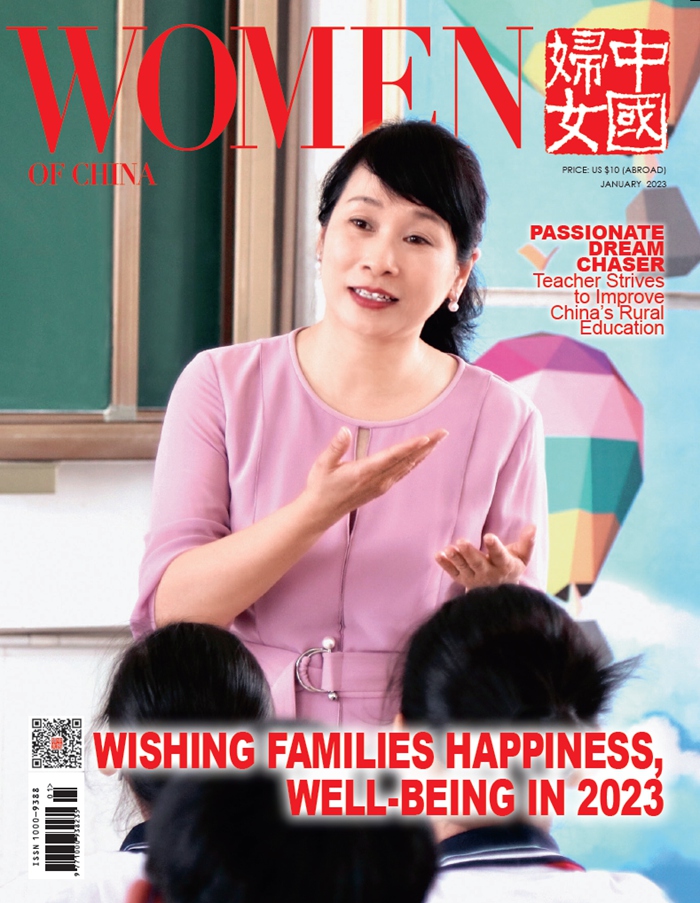
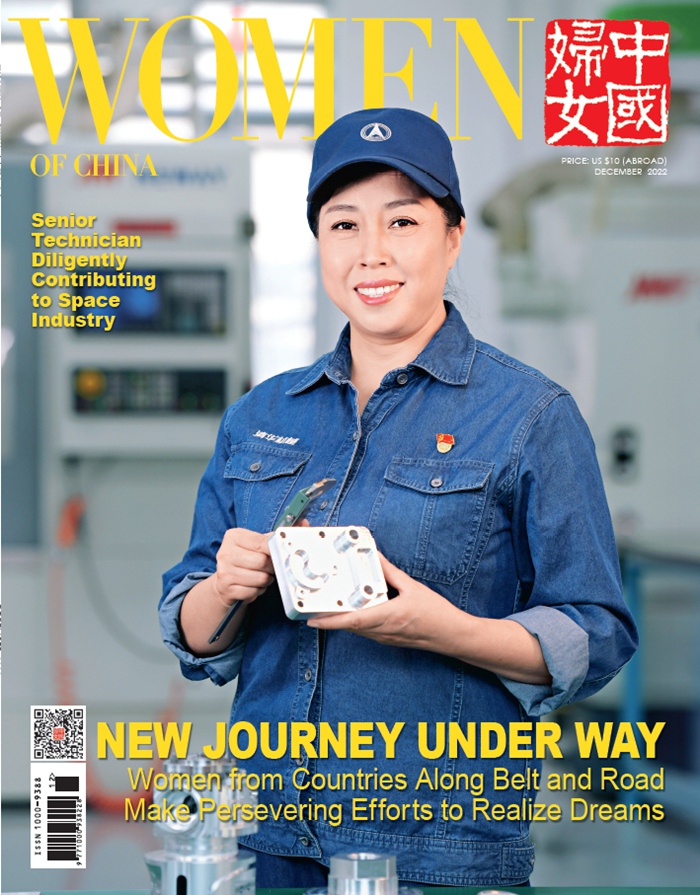

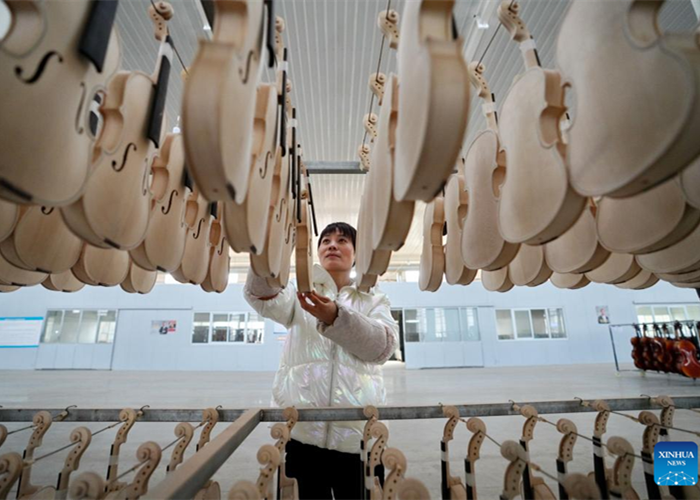
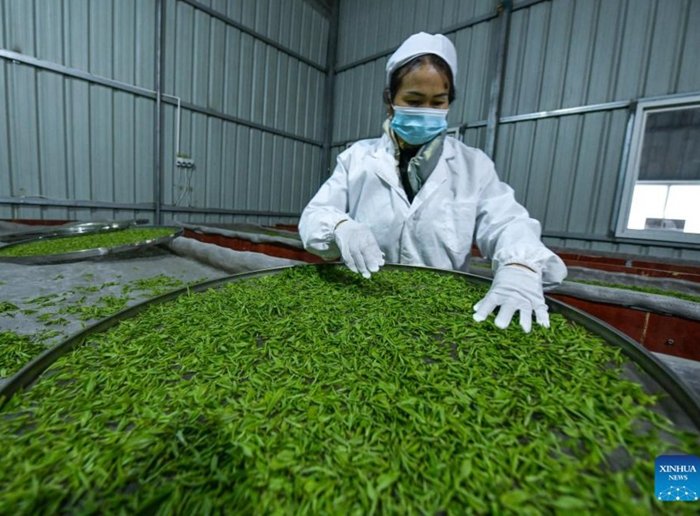


 WeChat
WeChat Weibo
Weibo 京公綱安備 11010102004314號
京公綱安備 11010102004314號